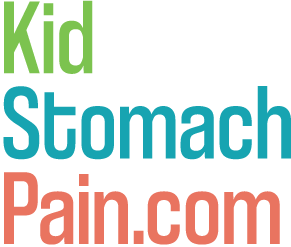Cognitive-Behavioral Therapy
Cognitive-Behavioral therapy (CBT) focuses on a biopsychosocial model of pain where multiple factors may contribute to chronic abdominal pain including genetic predisposition, life events, family dynamics, and coping mechanisms. The goal is to change a patient’s thoughts, perceptions, and behaviors related to their pain symptoms.
A cognitive-behavioral therapist can help a teen explore connections between their thoughts, feelings and behaviors. One major goal of CBT for teens with functional abdominal pain is to change negative thought patterns regarding his/her pain. If a teen has experienced pain in the past, anticipating the pain again can make the next pain episode worse. A therapist can help the teen learn to stop negative thoughts about pain and replace negative thoughts with positive ones.
Because many teens with functional abdominal pain also have anxiety and depression symptoms, a therapist can also help with those. Any chronic pain can lead to anxiety or depression, so it is not surprising that teens with functional abdominal pain are more likely to experience these psychological issues. Cognitive-behavioral therapy can help teens identify their pain triggers and improve their coping skills. CBT has been shown to ease tension, lower stress and help with anxiety in teens with functional abdominal pain.
Family dynamics regarding the teen’s functional abdominal pain is another area which can be helped by cognitive-behavioral therapy. It’s important to understand how chronic abdominal pain affects the teen and the whole family. The therapist can help explore these issues and establish good coping mechanisms with the family and improve the quality of life for the teen.
Your doctor can refer you to a qualified cognitive-behavioral therapist in your area if this is a good treatment option for you.



